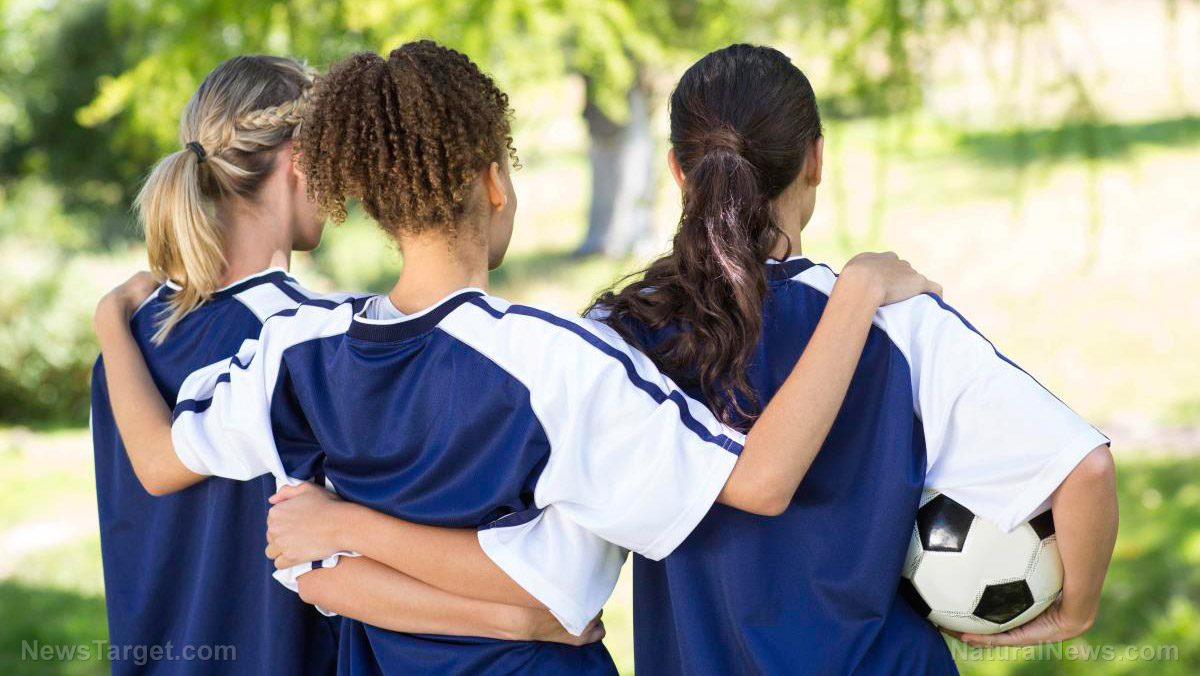You are who you hang out with: Study shows brainwaves “sync” between people who spend a lot of time together
09/28/2018 / By Lance D Johnson

The people who are closest to you are subtly shaping your brain and influencing the way you behave and think. Researchers have found that when two or more people spend a lot of time together, their brainwaves find compromise and likeness, syncing together. The coherence grows stronger as they spend more time together. The study highlights the importance of choosing friends wisely.
Using electroencephalography technology (EEG), researchers from New York University and Utrecht University recorded the brain activity of students and teachers for a semester. Throughout the term, students were asked to report how much they like one another, how much they like their teacher, and how much they like group activities. Non-invasive electrodes were placed on the students’ scalps to see how their brain changed over time. The more they interacted, especially before class, the more their brain waves began to sync.
Professor Moran Cerf from Northwestern University believes that a rich and fulfilling life comes from the syncing that takes place between friendships and friendship groups. He says that individuals should eliminate all the small decisions they think are tied to happiness and instead focus on what really matters: carefully choosing friends and making true connections. He suggests being very decisive with whom you spend your time with, as their worldview and behavior begins to merge with yours.
The changes that take place in the brain are unconscious, but they are detectable changes. When two or more people get in sync with one another, they work better together as a team. Desirable behaviors and worldviews begin to converge, forming likeness. Whether you are aware of this or not, the changes happen; naturally, brainwaves start to resemble one another. That’s what the researchers learned when they studied the students EEG readings during their semester class.
Most telling, those students whose brain waves were in sync with classmates were more likely to give the course a favorable rating. When two students interacted face-to-face before class, they were more in sync with one another, felt closer to each other, and were more in sync with the class in general. The interactions that take place before an experience make the experience more rich due to the syncing that occurs between two or more people. (Related: Fight depression with these 15 tips you can use today.)
Being decisive and selective with friendships is how people make life improvements. If you seek a more desirable trait, it’s best to befriend a person that exhibits those qualities you wish to have. “This means the people you hang out with actually have an impact on your engagement with reality beyond what you can explain. And one of the effects is you become alike,” said neuroscientist Moran Cerf. Long term satisfaction is tied to friendship choices.
When one’s brain wavelength is on the same frequency with another, a phenomenon called “neural coupling” results, making way for easier communication and understanding. Dr. Cerf recommends that individuals not worry so much about small decisions such as ‘where to go’ and ‘what to do.’ He suggests putting more emphasis on who to go with, as this relationship has more impact on the experience and one’s level of happiness over time.
For more articles on social behavior and interaction, check out Mind.news.
Sources include:
Tagged Under: behavior, brain waves, coherence, community, friendships, happiness, mind body science, Psychology, relationships, self improvement, social interactions, society



















